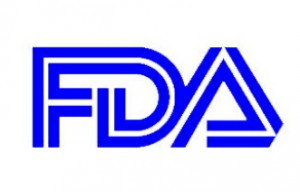The FDA announced yesterday that they have created the Office of Dietary Supplement Programs (ODSP), which elevates the program from its status as a division under the Office of Nutrition Labeling and Dietary Supplements. This change will “enhance the effectiveness of dietary supplement regulation by allowing ODSP to better compete for government resources and capabilities to regulate this rapidly expanding industry.”
 The FDA does not regulate dietary supplements until there is a problem reported. The government takes action to remove supplements from the market that may be dangerous to consumers, and removes those that are falsely labeled or contain undeclared drugs. Other actions the government can take is enforcing good manufacturing practices regulation, especially when violating those practices can compromise product safety or can result in consumer deception. The dietary supplement industry has grown from $6 billion in sales 20 years ago to more than $35 billion today.
The FDA does not regulate dietary supplements until there is a problem reported. The government takes action to remove supplements from the market that may be dangerous to consumers, and removes those that are falsely labeled or contain undeclared drugs. Other actions the government can take is enforcing good manufacturing practices regulation, especially when violating those practices can compromise product safety or can result in consumer deception. The dietary supplement industry has grown from $6 billion in sales 20 years ago to more than $35 billion today.
If manufacturers do not verify the identity of their raw materials, supplements can be mislabeled, and this lack of action can compromise the safety of the product. If products are not properly identified, consumer safety can be jeopardized. In addition, economic fraud is a problem in this industry. Egregious claims of benefit in treating diseases is illegal, and can cause serious harm.
Dietary supplements inclulde vitamins, minerals, herbal compounds, botanicals, amino acids, enzymes, and other products. All of these products are required to carry a label listing the contents in the product, the amount of active ingredients per serving, and other ingredients such as fillers, flavorings, and colorings. The National Institutes of Health states that “supplements can’t take the place of a variety of foods that are important to a healthy diet.” And, unfortunately, you cannot always be sure that what is listed on the bottle is what you get in the product inside.
And, since supplements are regulated under a different set of laws than those covering food products and prescription drugs. In 1994, the Dietary Supplement Health and Education Act was signed into law. Before that act, supplements were regulated as foods. The new law makes the manufacturer responsible for determining that supplements are safe. These products do not need approval from the FDA before they are marketed. And the firm does not have to provide FDA with evidence it relies on to substantiate safety or effectiveness. These facilities only have to notify the FDA if it markets a supplement that contains a “new dietary ingredient.” And manufacturers are responsible for determining if an ingredient is “new” or not.
Food Poisoning Bulletin has kept you up to date on all dietary supplement recalls over the last four years. And there have been many, ranging from too much nutrients, to undeclared new drugs, to dangerous products that have caused illness and death. If consumers take too many supplements or take them in combination, serious adverse effects can occur. Supplements can also interact with prescription drugs, in some cases lowering blood pressure to a dangerous level, and they can reduce the effectiveness of chemo drugs and birth control pills.




